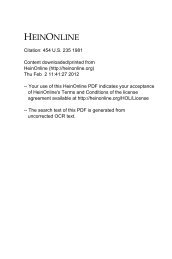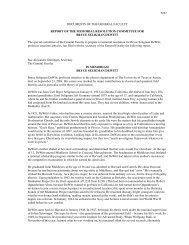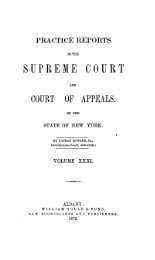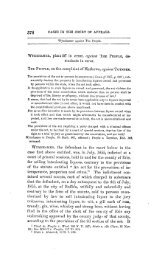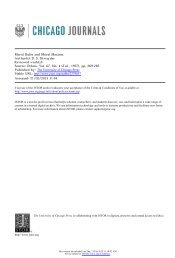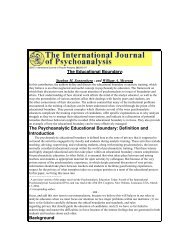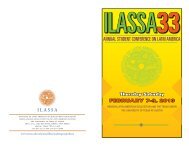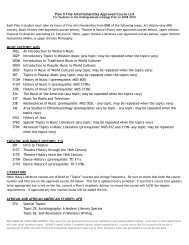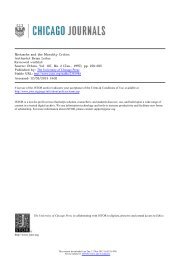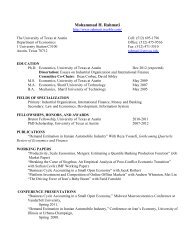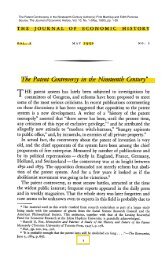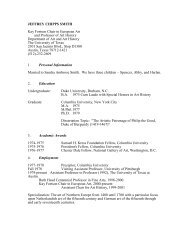Copyright by Gregory Krauss 2007 - The University of Texas at Austin
Copyright by Gregory Krauss 2007 - The University of Texas at Austin
Copyright by Gregory Krauss 2007 - The University of Texas at Austin
Create successful ePaper yourself
Turn your PDF publications into a flip-book with our unique Google optimized e-Paper software.
noticed <strong>by</strong> widely distributing it to Members <strong>of</strong> Congress. 149 Shlaudeman recalls th<strong>at</strong><br />
in the Ford administr<strong>at</strong>ion, “Lister was always Xeroxing things.” 150 Part <strong>of</strong> wh<strong>at</strong><br />
Shlaudeman may have observed was Lister performing this sort <strong>of</strong> activity—helping<br />
activists to spread inform<strong>at</strong>ion about human rights.<br />
Some <strong>of</strong> the time, though, Lister was dismayed th<strong>at</strong> activists were not<br />
providing objective inform<strong>at</strong>ion. In 1981, Uruguayan human rights activist Juan<br />
Ferreira, son <strong>of</strong> the exiled Uraguayan politician Wilson Ferreira, was asked to testify<br />
before Congress about the human rights situ<strong>at</strong>ion in his home country, which had<br />
been under military rule since 1973. 151 Lister told Ferreira the night before the<br />
hearing th<strong>at</strong> he “hoped he would be objective and accur<strong>at</strong>e…and th<strong>at</strong> he would<br />
include improvements, as well as shortcomings, in Uruguay in his testimony.” 152<br />
Ferreira replied th<strong>at</strong> he intended to discuss some improvements, and provided Lister<br />
with a copy <strong>of</strong> his opening st<strong>at</strong>ement, which was apparently not completely to Lister’s<br />
liking. 153 Lister <strong>at</strong>tributed Ferreira’s bias mainly to a sense <strong>of</strong> p<strong>at</strong>riotism. “Uruguay is<br />
closest to his heart and it is more difficult for him to be objective on th<strong>at</strong> subject,”<br />
Lister wrote. 154<br />
However, the most common kind <strong>of</strong> bias th<strong>at</strong> Lister encountered among<br />
human rights activists was left-wing bias. U.S. human rights activists in particular had<br />
a tendency to criticize the human rights practices <strong>of</strong> right-wing dict<strong>at</strong>orships but not<br />
those <strong>of</strong> Communist countries, such as Cuba. Lister urged them to be objective, or<br />
face losing credibility. “He reminded everyone th<strong>at</strong> if you’re against torture <strong>by</strong> right-<br />
89



